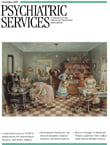Letter
Psychosocial Distress in Cancer Patients' Families: Reply
In Reply: Dr. Gulliver's letter raises important concerns about the delivery of psychosocial and psychiatric care to patients with cancer. Her case description highlights complex clinical issues about the social context of oncology practice and the importance of involving family at many levels. In clinical practice, it behooves medical and psychosocial teams to include family caregivers in communication and medical decision making, as well as in assessments of coping and the need for psychosocial intervention.
In fact, 44% of oncologists in our study reported that "talking with family" was one of their methods of screening for distress ( 1 ). Caregivers and other persons in the patient's social network can be an asset to patients' coping and to their receipt of psychosocial care, but these individuals can also be liabilities depending on their own beliefs and past experiences with medical and psychiatric care. There is increasing attention to caregivers of patients with cancer and to the potential for enhancing outcomes for both patients and caregivers ( 2 , 3 , 4 ).
The case also raises questions about the role of patient autonomy and the responsibility of physicians to treat adult patients according to their own wishes, especially in difficult medico-legal situations. This is in contrast to pediatrics (the first author has worked in both adult and pediatric settings), where parents and guardians make medical decisions for children under 18 but are also held accountable by child protection laws for making decisions that are in the best interest of their child. Adult oncology settings are not organized to account for complex family systems, and clinicians are therefore left to use clinical skill and judgment in assessing and treating a patient's comorbid medical and psychiatric conditions, either in collaboration with the family or despite their involvement.
Although there are particular systemic challenges with difficult families, clinicians must continue to strive for appropriate screening and delivery of psychosocial and psychiatric care to patients with cancer. Psychiatrists working in oncology settings are well positioned to enhance oncology providers' awareness of reliable methods of identifying and treating psychosocial distress, as well as to advocate for increased availability of mental health services in oncology treatment settings.
1. Pirl WF, Muriel AC, Hwang V, et al: Screening for psychosocial distress: a national survey of oncologists. Journal of Supportive Oncology 5:499–504, 2007Google Scholar
2. Rhee YS, Yun YH, Park S, et al: Depression in family caregivers of cancer patients: the feeling of burden as a predictor of depression. Journal of Clinical Oncology 26: 5890–5895, 2008Google Scholar
3. Kim Y, Given BA: Quality of life of family caregivers of cancer survivors: across the trajectory of the illness. Cancer 112(suppl 11):2556–2568, 2008Google Scholar
4. Zaider T, Kissane D: The assessment and management of family distress during palliative care. Current Opinion in Supportive and Palliative Care 3:67–71, 2009Google Scholar



